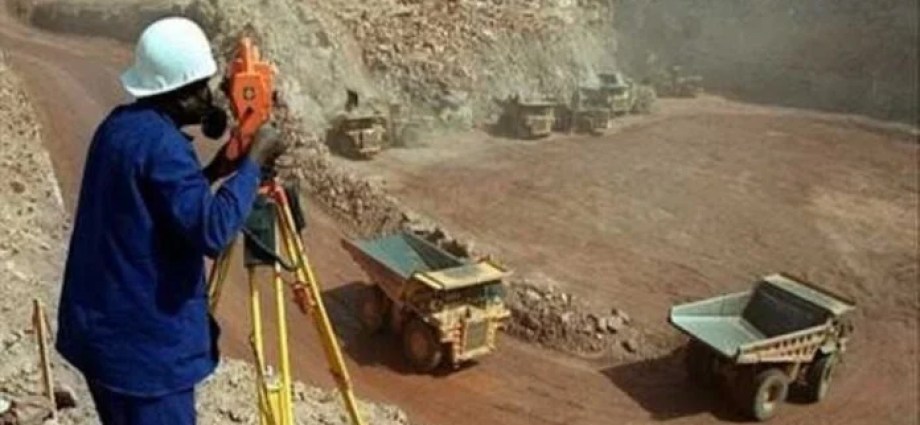Senegal’s Mining Sector in Crisis: Over 200 Illegal Sites and Systemic Failures Uncovered Des mines (Mines) A comprehensive audit by Senegal’s Ministry of Energy, Petroleum, and Mines has exposed alarming disorder within the nation’s mining sector, revealing more than 200 clandestine sites, 275 inactive mining titles, and widespread fiscal and environmental violations. In response, authorities have pledged a sweeping cleanup plan to restore transparency and ensure that mineral resources finally benefit both the state and local communities. The Ministry of Energy, Petroleum, and Mines of Senegal has brought to light a deeply troubling situation in the management of the country’s mineral resources. A thorough audit uncovered a range of irregularities, from the existence of illegal mining sites and inactive exploitation permits to significant fiscal shortfalls and environmental negligence. An Audit with Damning Conclusions Out of more than 1,100 mining titles reviewed, a mere 94 were found to be fully compliant—representing just 8% of the total. On the ground, inspectors identified close to 850 mining sites, of which over 200 were operating illegally, completely outside state control. In addition to these unlawful operations, 275 titles were found to be inactive, with some permits expired for years yet still being exploited. Minister Birame Souleye Diop condemned what he called an “abyssal gap” between the official data from the mining cadastre and the reality on the ground. According to him, this structural disorder undermines transparency and deprives both the state and local populations of essential resources. Multiple and Alarming Deficiencies The audit highlights a series of systemic failures: unrenewed authorizations, unpaid taxes, irregular granting of permits, and a widespread disregard for social and environmental commitments by numerous operators. These abuses have fueled a climate of distrust among communities living near mining sites, many of whom are already suffering from the ecological impacts of irresponsible mining practices. Beyond the immediate economic fraud, the findings raise serious questions about national sovereignty over natural wealth. Minerals such as gold, zircon, and phosphate represent strategic levers for Senegal’s development, making responsible governance not just an economic issue, but a matter of national interest. A Promised Cleanup Plan Confronted with these systemic failures, the ministry has promised to restore order. A comprehensive cleanup plan is now underway, including open-door events in five strategic geological zones—Thiès, Kaolack, Ziguinchor, Kédougou, and Matam—aimed at educating stakeholders about legal rules and procedures. In parallel, a committee of twenty experts has been established to ensure strict compliance with regulations in the future allocation of mining titles. The stated goal is clear: to rebuild trust, protect the environment, and guarantee that mineral exploitation benefits both the people and the state. What Does This Mean for Senegal’s Future? The revelation of more than 200 illegal mining sites underscores the magnitude of the challenge facing Senegalese authorities. While the mining sector holds significant potential for economic growth and job creation, it cannot fulfill this role without transparent governance and rigorous oversight. The stakes are high: transforming underground wealth into an engine for sustainable and equitable development. This situation is not unique to Senegal. Across Africa, nations rich in natural resources often struggle with illegal mining, weak regulatory enforcement, and revenue leakage. The question now is whether Senegal’s response will serve as a model for other resource-rich countries—or a cautionary tale. The Human and Environmental Cost Behind the numbers and official reports lie real human and ecological consequences. Illegal mining operations frequently bypass safety standards, putting workers at risk and causing long-term environmental damage. Water sources are contaminated, farmland is degraded, and communities are left grappling with health issues and lost livelihoods. For Senegal to harness the true potential of its mining sector, it must not only enforce laws but also foster a culture of corporate responsibility and community engagement. This means holding companies accountable for their environmental impact and ensuring that local populations see tangible benefits from mining activities. Looking Ahead: A Test of Political Will The success of the ministry’s cleanup plan will depend heavily on political will and institutional capacity. Past efforts to reform the mining sector in various countries have often stumbled due to corruption, lack of funding, or insufficient technical expertise. Senegal’s approach—combining audits, stakeholder engagement, and expert oversight—suggests a more holistic strategy. Nevertheless, implementation will be key. Without sustained commitment, even the best-laid plans may fail to bring about meaningful change. The world will be watching to see if Senegal can turn this crisis into an opportunity for renewal and reform. This article is a summary of an original report. Full credit goes to the original source. We invite our readers to explore the original article for more insights directly from the source. (Source)
2025-09-17


